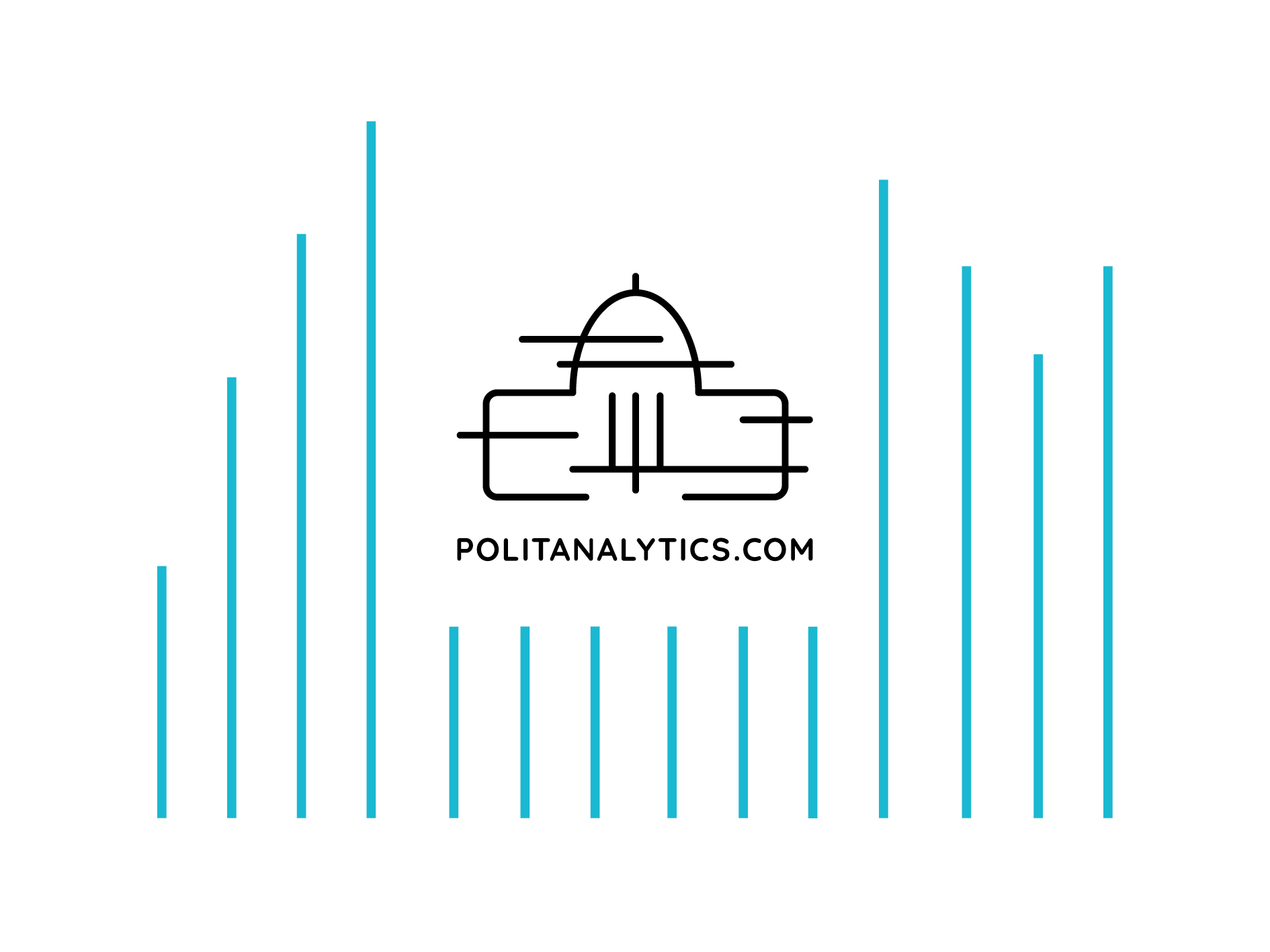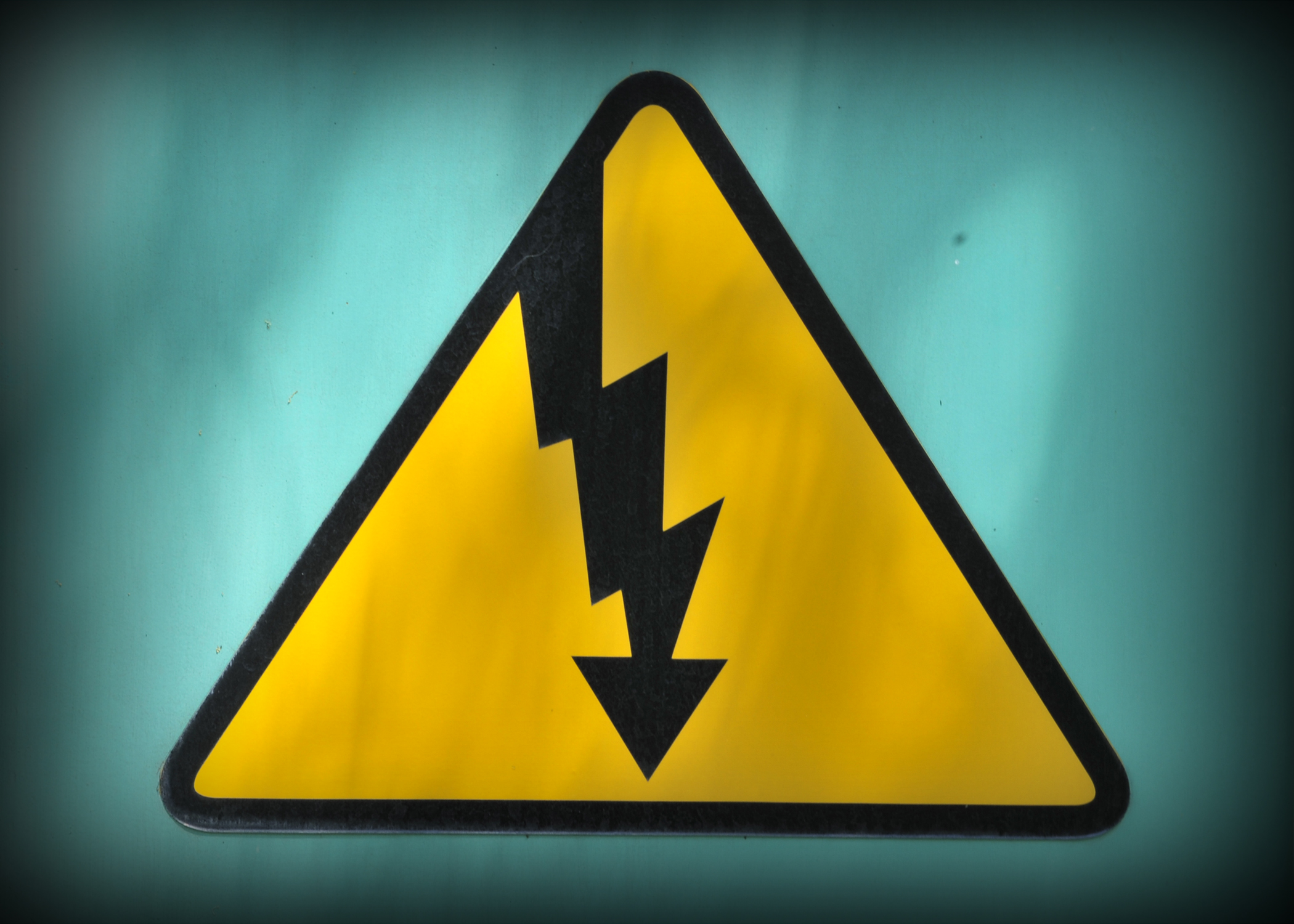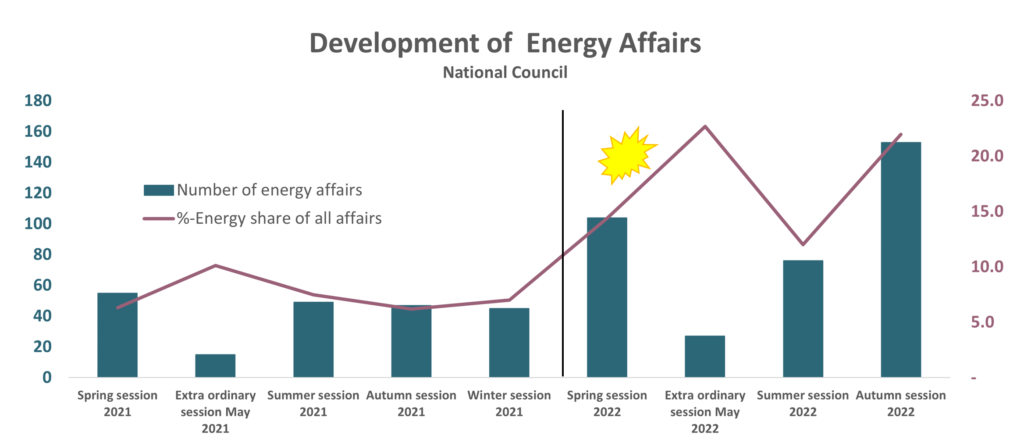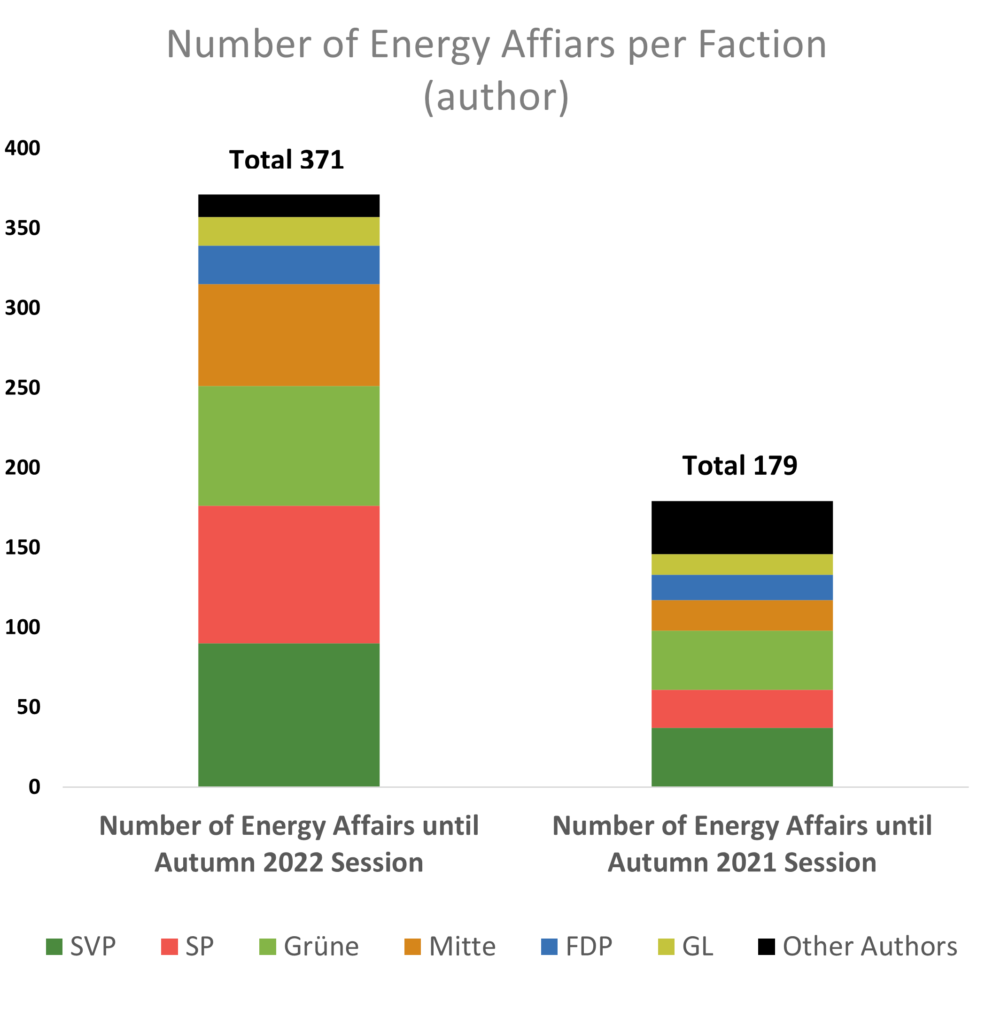
You don’t have a login yet? Make an appointment for a presentation now.

You don’t have a login yet? Make an appointment for a presentation now.

Energy as a political issue emerged before the autumn session of 2022. The issue has gained popularity since the outbreak of war in February 2022, which has led to a numerical increase in the number of policy matters submitted on energy.
The development from 2021 to 2022 is clearly visible in the graph below. In 2022, 17% of all submitted policy affairs concerned energy. During the extraordinary session in May, the share of energy even reached one fifth of all matters. This resulted in an increase of 12.6 percentage points during the extraordinary session as well as an increase of 15.8 percentage points during the autumn session compared to the same sessions in 2021, underlining the relevance of energy policy at the national level.

The graph shows the respective National Council sessions in the period 2021 and 2022. Not only are more energy-related affairs opened during the course of 2022, but the percentages also show that the topic is taking up more space in the National Council.
Example: In the autumn session of 2022, a total of 696 affairs were submitted. 153 of these matters are tagged as “energy”. Thus, energy affairs take up 22% of all political matters in the 2022 autumn session.
When evaluating the number of energy motions submitted by faction, it becomes obvious the development originates with the SVP, the SP and the Mitte. While the SVP submitted 37 energy proposals in 2021, it has more than doubled this to 90 this year. The SP shows an even higher percentage development with an increase from 24 to 86 affairs. Although Grüne led the energy affair ranking last year with 37 submitted affairs (the same number as SVP), they fall back to third place this year with 75. Although energy is supposedly a core issue of the Grüne, they have fallen behind in the number of affairs. A similar development can be observed in the GLP parliamentary group.

The chart shows the number of energy business opened in all 2021/2022 sessions up to and including the autumn session. In addition, the party participation is shown. In other words, how many affairs were opened by which party.
The combination of other topics and energy issues is also interesting. Most issues are labelled with more than one category. Thus, in the past, energy and environmental issues overlapped to a large extent. However, in 2022, environmental aspects were less considered in parliamentary discussions on energy than before. Recently, there have been the most combinations with energy and security, economic and international policy issues. Thus, the environment shaped energy policy in 2021. Relevant energy and environmental aspects were previously sustainable energy sources (especially solar and hydro power), their economic viability, the future of nuclear power and the rejected CO2 law (17.071). Nevertheless, the environment was considered in energy policy 2022. However, the discussions are not only about environmental aspects, but often also about securing the energy supply.
There was always the possibility that environmental aspects would become more important as the lack of energy supply becomes more relevant. It would have been an opportunity for Switzerland to minimise its dependence on other countries and possible undemocratic regimes. Especially considering the “Green Wave” with the parliamentary seats won by the Green and GLP parliamentary groups, the “Climate Youth” and more international pressure (e.g. climate conferences like Glasgow COP 26 or Cairo COP 27). For the winter of 2022, when the worst energy crisis has been overcome and environmental aspects may come back into focus.
Further considerations: Policy Making for the Greater Good
The influence of lobbying is unmistakable in Swiss politics, leading to a one-sided view of political events. Global aspects such as climate change or migration crises (known as global public goods: collective interests that affect people globally) hardly ever make it onto the political stage. But this would be of utmost importance in view of the increasing pressure of climate development, especially in energy production. An example of this is the SVP’s demand (22.3026 Umweltressourcen schonen, Zuwanderung regulieren) to regulate immigration to Switzerland in order to ensure compliance with sustainability goals. From a holistic point of view, however, it simply does not matter whether a person lives in Switzerland or abroad. CO2 emissions remain at a similar level. So instead of addressing the problem, it is being pushed away.
The Mitte takes up the issue by questioning the right of associations to appeal (Pa-Iv 22.414 Errichtung von Anlagen zur Nutzung erneuerbarer Energien. Einschränkung des Beschwerderechts der Umweltorganisationen), which is a double-edged sword. In the case of projects such as the Grimsel dam or Gondo Solar (FDP-Motion 22.3899 Stromproduktionsanlagen für erneuerbare Energien sofort und verpflichtend umsetzen), the energy needs of the population and economic aspects outweigh ecological considerations. However, in a direct democracy, all stakeholders have the opportunity to object within the political process, as this is the core of such a system. Currently, both matters are pending. Pa-Iv 22.414 has been referred to the Commission for the Environment, Spatial Planning and Energy, and Motion 22.3899 is awaiting consideration by the National Council.
The analysis of the number of submitted affairs is limited because it is not possible to make assumptions about the quality and thus the impact in the political world on the basis of purely quantitative considerations. It is therefore impossible to make a trend analysis based on this data. Moreover, the number of matters includes all kinds of affairs like questions, motions, interpellations, etc.
In addition, the topics are subject to manual ranking, which is essentially a matter of subjectivity. There are a total of 29 parliamentary topics. Each matter is classified into one or more subject areas. However, some complex matters are given multiple keywords, while other matters of the same complexity are given only a few or even just one. Nevertheless, the number of topics is an indication that the sensitivity of Swiss politicians to energy issues has increased.
